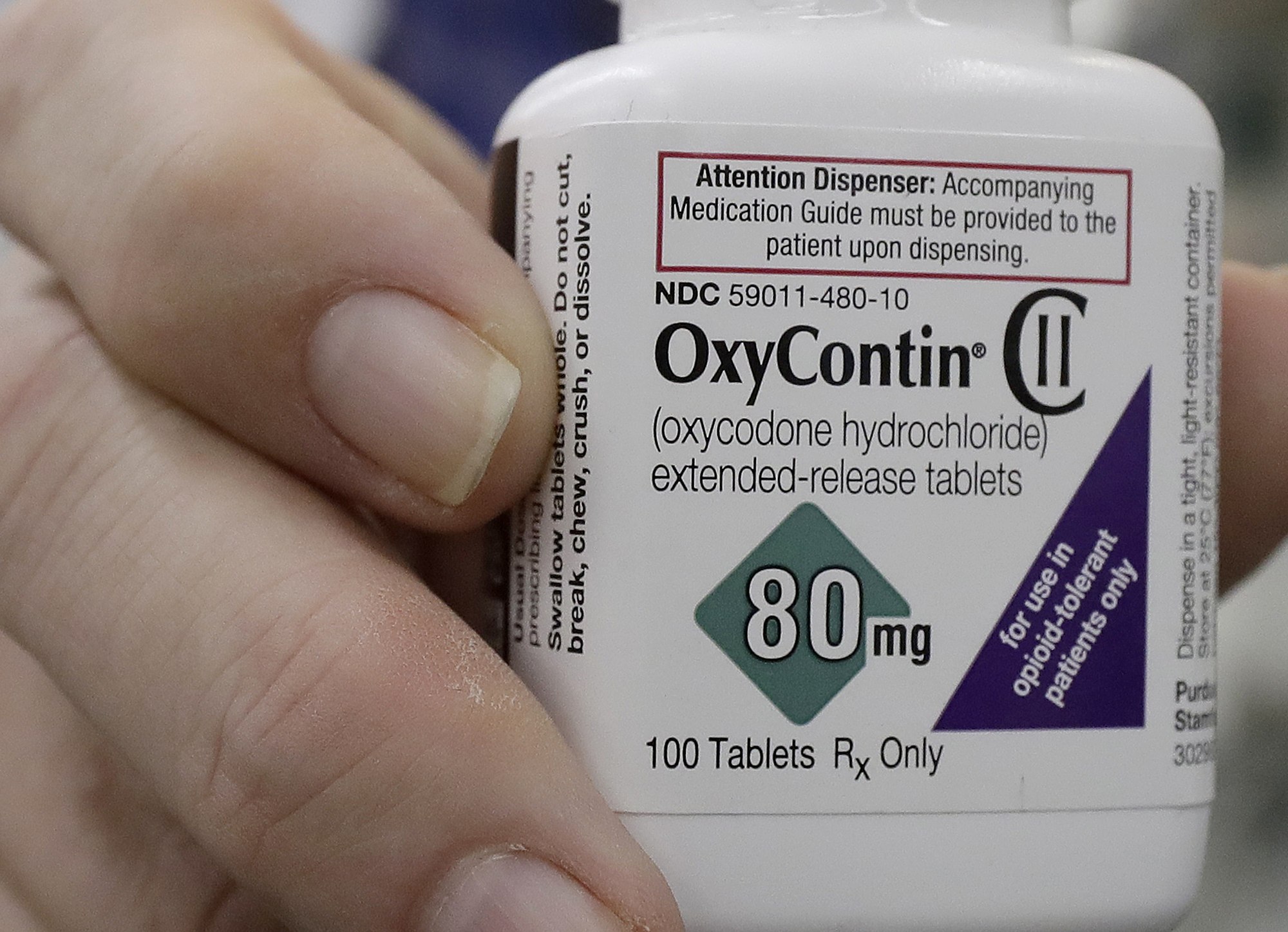OxyContin-Stained Sackler Fortune Too Toxic for This Woke Hedge Fund

One Connecticut hedge fund has dumped the $13 billion Sackler family, who made their fortune through the creation and production of OxyContin. | Source: AP Photo / Mark Lennihan
Under fire for fueling the opioid crisis, the billionaire family that controls OxyContin maker Purdue Pharma LP has been booted from a large hedge fund, the Wall Street Journal reports.
Hildene Capital Dumps Family Behind OxyContin Fortune
Last year, Hildene Capital Management, which manages some $10 billion in client assets, notified Sackler family investment entities that it would no longer handle their money. This overture of socially responsible hedge funding was inspired by an opioid-related tragedy that deeply affected several Hildene employees.
Hildene fund manager Brett Jefferson told the Journal:
“An opioid-related tragedy affected someone with a personal relationship to me and other members of Hildene. Last year the weight on my conscience led me to terminate the relationship and initiate the redemption procedure.”
Facing mounting lawsuits and growing criticism from public-health officials over the deceptive tactics Purdue allegedly used to market painkiller OxyContin, the Sackler family has tried to dodge scrutiny of their role at the pharmaceutical company.
But lawsuits filed by 36 states and more than 1,600 cities and counties against Purdue, other drugmakers, and distributors of prescription painkillers are increasingly targeting Sackler family members. The Journal reports that four Sacklers have been called to testify this month in cases against Purdue in Ohio and Oklahoma.
In addition to hedge funds, a growing number of non-profits , universities, and museums are also growing weary of Sackler money. Critics say that the family has carefully crafted a facade as global benefactors of the arts and sciences, funding prominent art exhibits like the Sackler Wing of the Metropolitan Museum of Art in New York and the Arthur M. Sackler Gallery at the Smithsonian Institution in Washington. The Sacklers have also bankrolled multiple educational programs, professorships, and medical research programs at the Massachusetts Institute of Technology, Columbia University, Cornell, Stanford, and Yale.
OxyContin Sales Top $35 Billion as Opioid Crisis Sweeps Across America

Ranked as the 19th richest family in the world by Forbes in 2016, with an estimated net worth of $13 billion, the Sacklers minted the bulk of their fortune after the release of OxyContin in 1995. The pain pill quickly became Purdue’s golden goose, accounting for over 90 percent of its sales at its zenith in 2012. As of 2017, OxyContin had generated some $35 billion in revenues for the pharmaceutical company.
But critics allege that recently revealed internal company emails that implicate ex-Purdue President Richard Sackler in unethical marketing practices have stained the family fortune with the blood of American opioid crisis victims. Amid an unprecedented epidemic, some 200,000 people have died from prescription opioid overdoses alone in the last two decades.
Andrew Kolodny, the co-director of the Opioid Policy Research Collaborative, at Brandeis University, told the New Yorker that the crisis owes its origins to a shift in the culture of prescribing that occurred in the mid-90s.
“If you look at the prescribing trends for all the different opioids, it’s in 1996 that prescribing really takes off,” Kolodny said. “It’s not a coincidence. That was the year Purdue launched a multifaceted campaign that misinformed the medical community about the risks.”
Kolodny said that Purdue deserves the “lion’s share” of the blame for the opioid epidemic.
Massachusetts Sues Purdue Pharma & Sackler Family
An amended complaint filed by Massachusetts Attorney General Maura Healey, who is suing Purdue, eight Sackler family members, and other board members, has exposed emails that show Richard Sackler pushing Purdue executives to devise “less threatening ways to describe Purdue opioids.” The complaint also alleges that Richard Sackler argued against a legally required warning for OxyContin because it implied “a danger of untoward reactions and hazards that simply aren’t there.”
In Massachusetts, where more than 11,000 people have died from opioid-related overdoses over the last ten years, the attorney general’s investigation linked 671 of those deaths to Purdue prescriptions, according to the complaint.
As growing legal and financial pressures push Purdue to explore filing for bankruptcy, it remains to be seen if any member of the Sackler clan will face criminal charges for their alleged role in igniting an epidemic that killed more people in 2017 alone than all U.S. military casualties in the Vietnam and Iraq wars combined .
But in the era of socially responsible investing, critics of Purdue Pharma say that it’s a comforting sign that drug money has become an unacceptable capital stream for at least one Connecticut hedge fund.